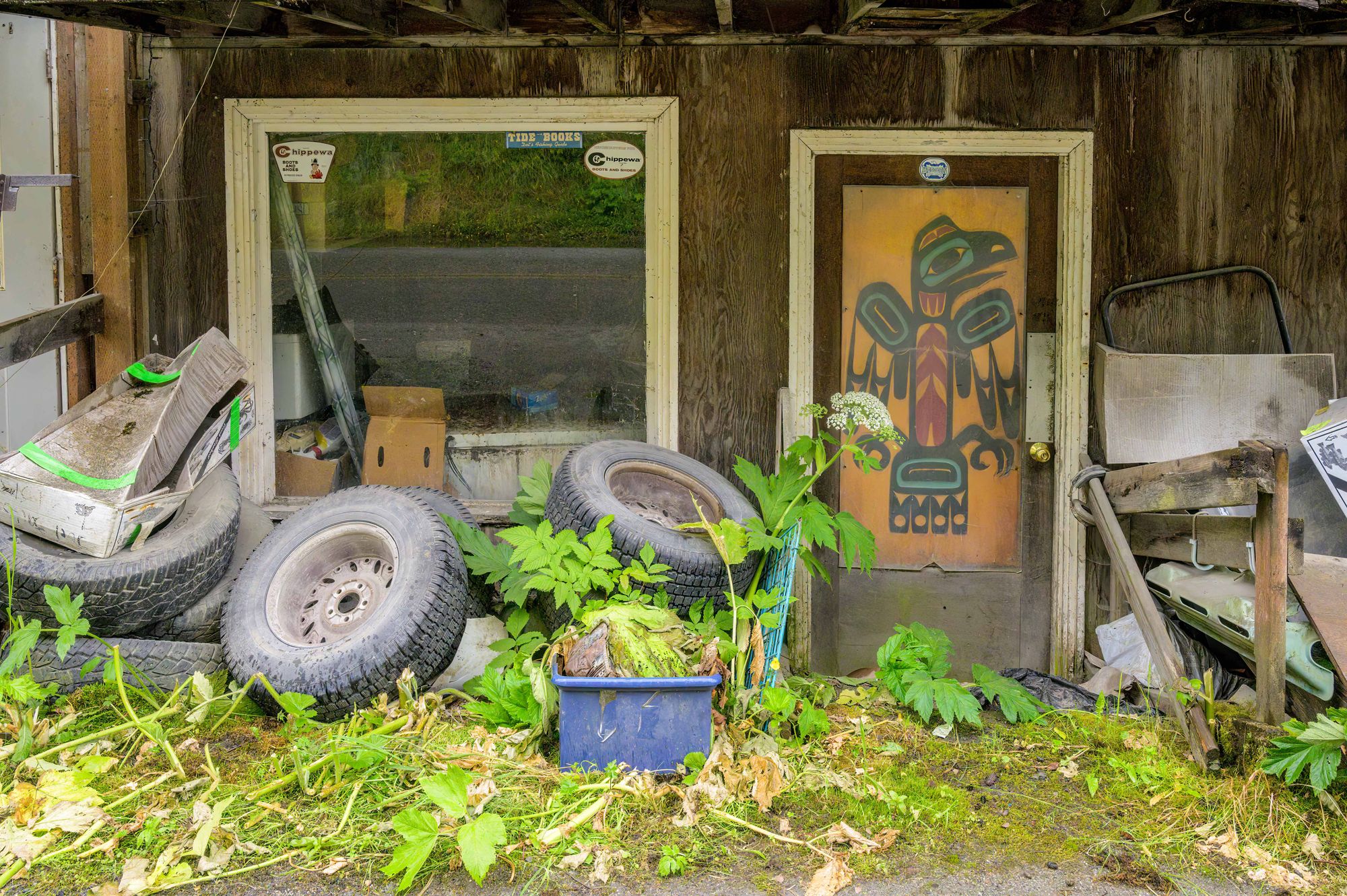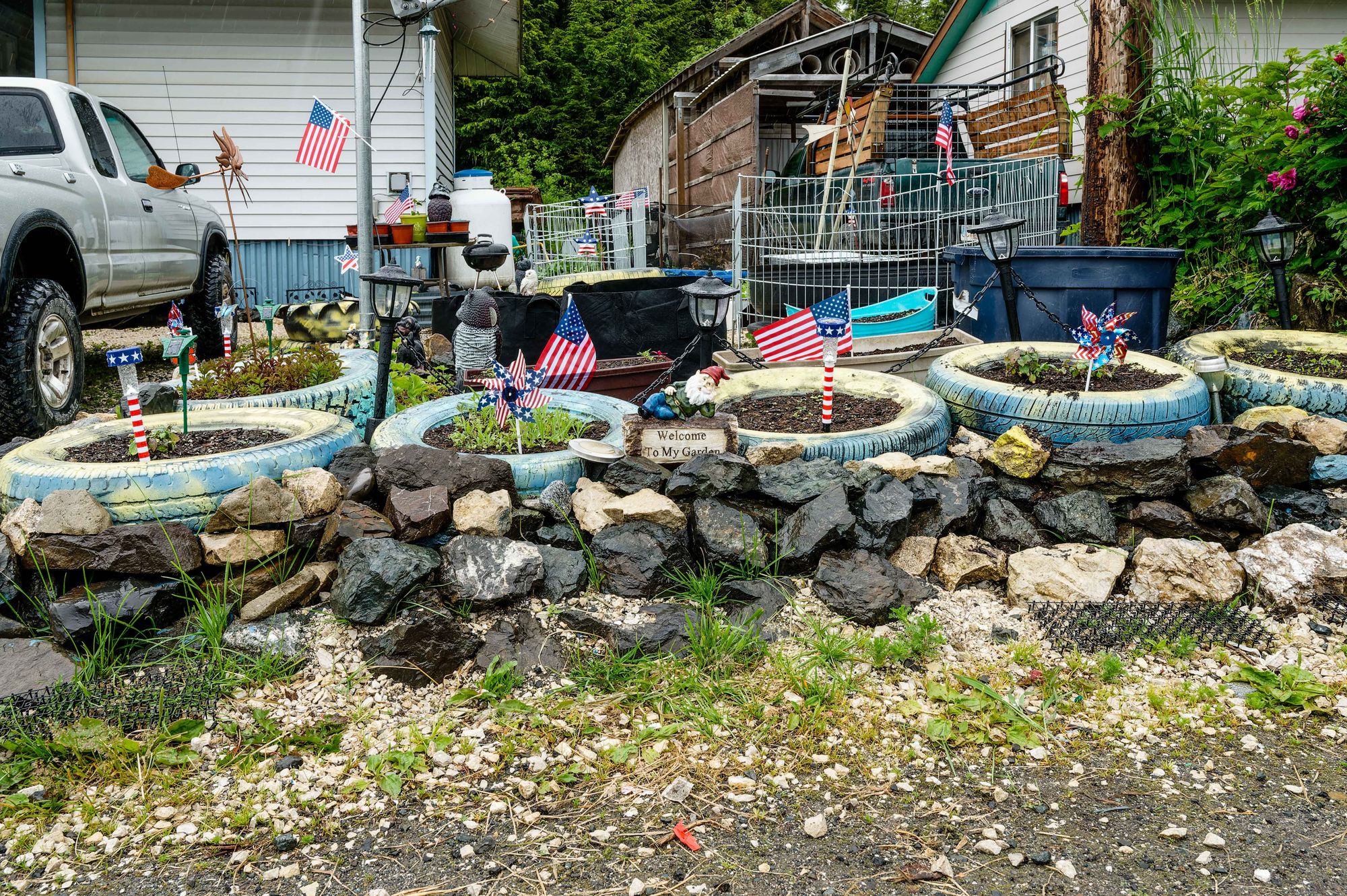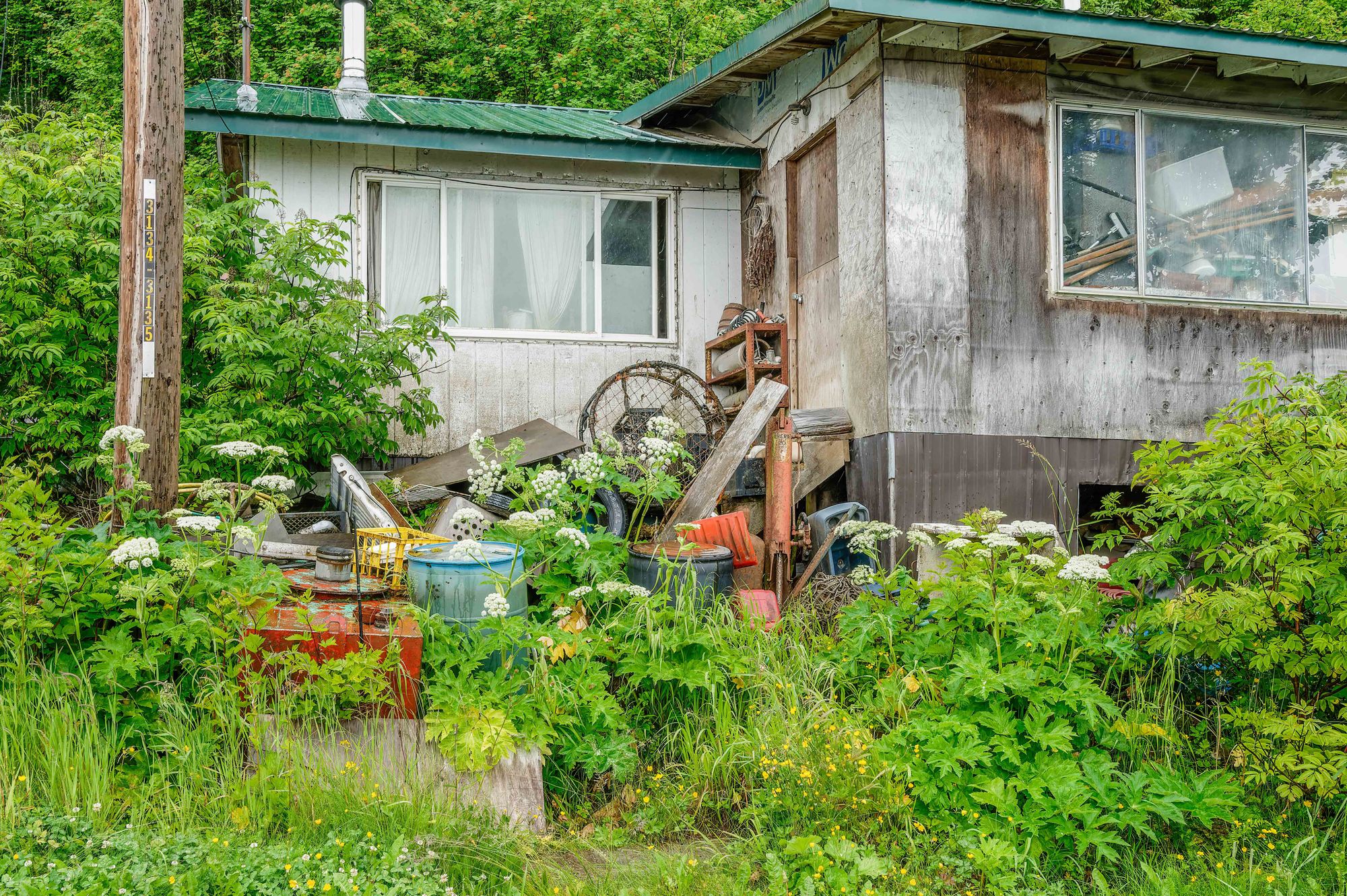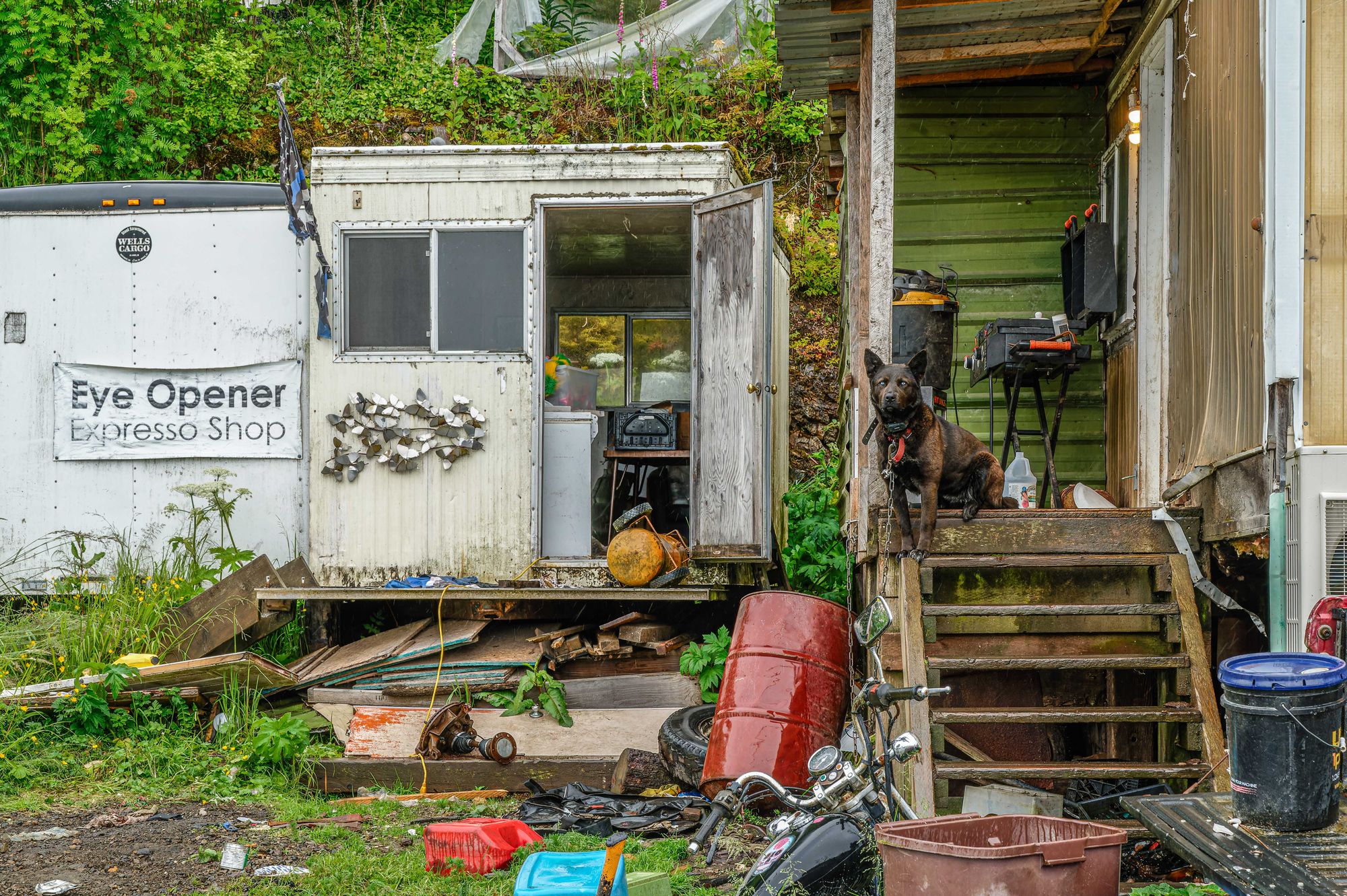Alaska III — Abodes

Includes used tires, Joe McGinnis, one mention of the autism spectrum, and a devil dog.
I choose to live in unclutter. My mind may be a hotchpotch, but on a good day my workdesk holds only what is essential to the project at hand, the arrangement of necessary objects reflecting the impulse toward alignment of a man who once tested in the 85th percentile for Asperger’s. The adjacent computer desk may bear a tumult of books, but books aren’t clutter to the bookish. I can’t stand the visual mess of most people’s computer desktops, with icons scattered everywhere across an overfussy wallpaper image. My design aesthetic runs to Scandinavian zen minimalist; if Jony Ive designed it, I want it.
As a photographer, I have a different tolerance. The eye that I bring to the viewfinder relishes clutter. At least, human clutter. A cluttered natural scene with no form or visual rhythm defeats any attempt to turn it into art. But a mess of possessions and discarded items strewn about a yard and piled on a porch? That is a lovely thing to luck upon.
I was so happy in Alaska.

Something I recall, to be trusted or not: Joe McGinnis, talking about his time in the state reporting for his 1980 book Going to Extremes, once suggested that the Alaska state flower should be the empty oil drum. Everywhere he went, he said, oil drums and oil drums and oil drums. I didn’t see so many. Truck tires and wheels, though, that was a different story. Plus empty cartons and full cartons and furniture and plastic tubs and mattresses and abandoned toys and crab traps and busted chairs and lumber bleached gray and snow shovels and rusting machinery and jugs and paint cans and drywall and scraps of aluminum siding and bicycles and items I couldn’t begin to identify. Visual riches.

Status-conscious Americans equate, with a sniff, a jumbled porch and littered yard and junked machinery with poverty, ignorance, and laziness, and a fondness for cheap beer and Lynyrd Skynyrd. (Me too, when I’m feeling uncharitable.) Somewhere in this big jumbled land, that’s probably dead on. In Alaska, junk piled everywhere is more likely the outcome of geography. The towns I walked about last June were in Southeast Alaska, each one an island town. Except for what they could grow, fish, or hunt, the residents had to bring everything else in from the mainland. They were, I suspect, disinclined to truck anything that wasn’t in great shape but still might be useful someday to a landfill (if there was a landfill), where it would be of no use at all. What would be refuse to me in Maryland was resource to them and stayed in the yard, on the porch, in a shed, behind a window. You didn’t lose social standing with your neighbor because your neighbor did the same thing. Practical living.

When I look at a photograph, I often find myself recalling a story, or making one up if it’s another photographer’s image. When I gazed on these Alaskan houses, I did the same. What stories were embedded in all these layers of domestic archaeology? Good fortune and prosperity that deserted the inhabitants, then maybe returned to create another layer. Unions formed or dissolved, kids come and gone, a chair that nobody but the dog ever really liked, and he still sleeps on it outside when the weather’s not wretched.

One day I walked down a street in Kake, a largely indigenous village on Kupreanof Island, and came to the Eye Opener Expresso Shop. I felt like I’d struck it rich: the misspelled sign, the red oil drum (!), the battered house, the motorcycle, the open question as to whether the shop was still open for business—probably not, by the looks of it—and the dog with the demon eyes...I shot a lot frames here. The dog watched stolidly until I got a bit too close. Then it climbed to its feet and leaned toward me with a look that said, No closer, cheechako.
Point taken.
click
This is the third letter derived from recent travel to Alaska. The first two, in case you missed them or wish to review:
If you believe someone else would appreciate this issue of The Joggled Mind, please feel free to forward it, or link to it on social media. The contents are copyrighted but we’re pretty relaxed about that around here. As always, thank you for reading.
Member discussion